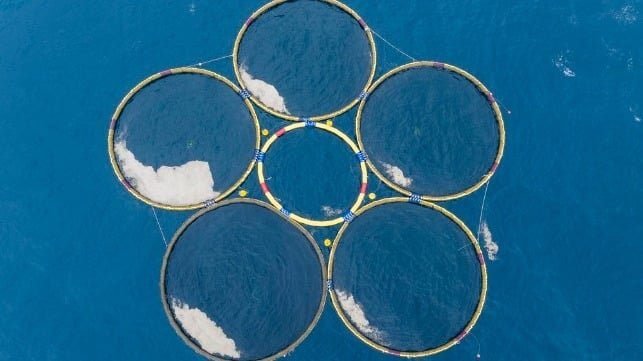Ocean fertilization, a method of removing carbon dioxide from the atmosphere by feeding phytoplankton with trace minerals to induce blooms, has the potential to be a low-cost and scalable solution. However, critics raise concerns about the risks it poses to marine ecosystems, such as red tide blooms and changes in plankton composition, as well as doubts about its effectiveness in reducing greenhouse gases. Gigablue, a high-profile startup from Israel’s tech scene now based in New York, believes it has addressed these issues by optimizing distribution and coating a tailored mixture of nutrients onto tiny particles.
Gigablue’s carbon removal system involves proprietary substrate particles coated with a nutrient shell. Phytoplankton feed on these nutrients, multiplying until they reach a sufficient mass, at which point the substrate sinks to depths exceeding 1,000 meters for long-term sequestration. This process stimulates plankton growth at the surface while ensuring the stored carbon remains at the bottom, accelerating a natural process through scientific intervention. The company utilizes AI to analyze vast oceanographic data sets, identifying optimal locations and nutrient combinations that match existing substances in the water column.
To ensure credibility in carbon removal efforts, Gigablue employs a scientific methodology for measuring and verifying the amount of carbon sunk to the ocean floor. The technology has been reviewed by New Zealand’s National Institute of Water and Atmospheric Research (NIWA) to ensure reliable and measurable carbon sequestration. Early customers, such as SkiesFifty, a firm focused on decarbonizing the aviation industry, have already purchased carbon credits from Gigablue, signaling confidence in the scalability and effectiveness of the technology. Co-founder and Chief Commercial Officer Ori Shaashua emphasizes the company’s commitment to harnessing natural elements like water and sunlight to create a financially sustainable carbon removal solution, marking a significant milestone in the market for marine carbon dioxide removal.






